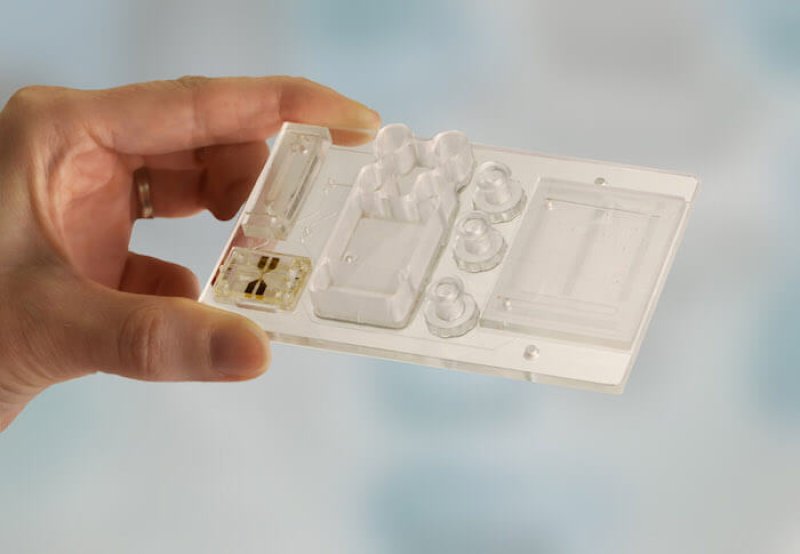Finding out you have cancer is bad enough, but to then have to go to hospital for a painful and invasive biopsy to try to identify the exact type of tumour can be deeply traumatic.
But that may soon be a thing of the past: new, cheap devices the size of a silicon chip could provide the same information from a simple urine test.
…
Better yet, these tiny devices, based on networks of fluid channels thinner than human hairs, have the potential to distinguish between different strains of the same cancer, enabling personalised treatment.
…
Precise analysis of the biomarkers is carried out with specifically designed nanotechnology: surfaces lined with intricate shapes, or molecules that attract specific species. Other approaches employ electrical, magnetic or acoustic fields to help select the biomarker target, and even have smarts: in-built electronic circuits for data processing.
A handful of devices are already on the market, such as CellSearch, which identifies tumour cells from colon, breast and prostate cancer in blood samples. However, [researcher Ciprian] Iliescu says many more will come online in the next few years.
“The technology is there, the methods are there, it’s a matter of optimising them,” he says
Read full, original post: A ‘cancer lab’ on chip































